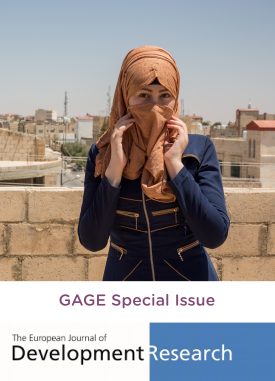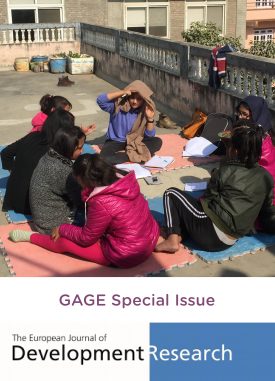While Ethiopia has seen a rapid expansion of school enrollment over the past 25 years, especially in primary education, dropout, absenteeism, and grade repetition remain key challenges to achieving the education-related Sustainable Development Goals. This article uses the 2017/18 Gender and Adolescence: Global Evidence (GAGE) survey of 6800 Ethiopian adolescents and regression analysis to examine how exposure to and /or experience of violence (from peers and at home), adolescent decision-making power in the household, and paid and unpaid child work are related to absenteeism, dropout, and on-time completion in primary school. The findings provide empirical evidence on the positive association between adolescent decision-making power in the household and educational outcomes and the negative relationships between adolescent education and both exposure to and /or experience of violence and paid and unpaid child work. We explore variations in the magnitude and robustness of these associations across gender, age cohort, and rural/urban residential location. Our findings suggest that programs which enhance decision-making power of adolescents in the household reduce exposure to and/or experience of violence among peers and at home and reduce participation in paid and unpaid child work which can improve adolescent educational attainment.
Suggested citation
Woldehanna, T., Endale, K., Hamory, J. and Baird, S. (2021) ‘Absenteeism, Dropout, and On-Time School Completion of Vulnerable Primary School Students in Ethiopia: Exploring the Role of Adolescent Decision-Making Power in the Household, Exposure to Violence, and Paid and Unpaid Work.’ European Journal of Development Research. (https://doi.org/10.1057/s41287-021-00454-5)


